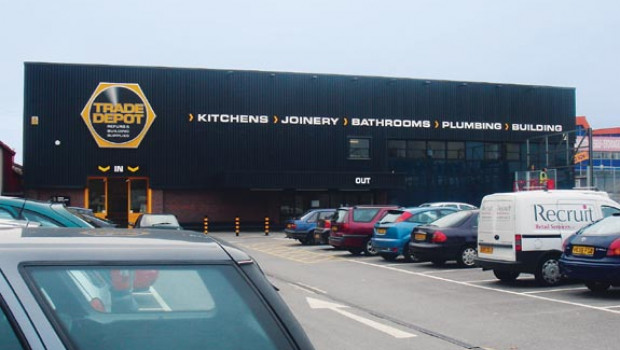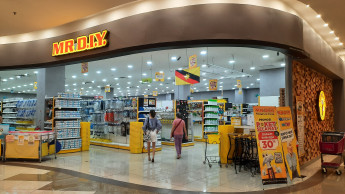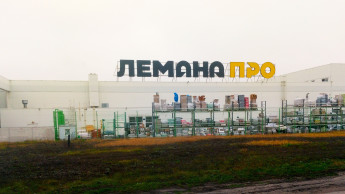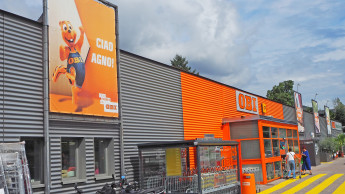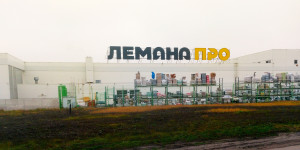Kingfisher intends to cover the trade segment in the United Kingdom with its new “Trade Depot” format
While Kingfisher has converted some of its standard B&Q outlets to a softer retail format, the Trade Depot format, as its name implies, is designed to appeal to tradesmen. This new operation, which comprises two stores at present, does not belong to B&Q but is a completely autonomous business.
Kingfisher currently operates two Trade Depot stores in the UK.
Kingfisher believes that the market provides a good opportunity for this latest initiative. The building materials sector is attractive for many reasons: it is a large market, estimated by Kingfisher to be worth € 75 bn, and predictions for future growth are positive as a result of private residential construction and the home enhancement trend. Strong growth in house-building is expected in a number of UK regions in the coming years.
Furthermore, this market segment offers good financial returns, and the new trading format complements B&Q, especially since the DIY chain is now moving to occupy the decorating and home enhancement segment more fully. All companies in the group will benefit from leveraging group capabilities, and many buying and systems synergies can be expected as well.
This is, however, a highly competitive market with a number of well-established and proficient players. But Kingfisher believes that the existing building materials suppliers are not succeeding in satisfying their customers entirely, which suggests that this is a field to be exploited. Management is convinced that Trade Depot can create a niche of its own, especially in key areas like price, availability of goods and services, which is where the established operators show a certain weakness.
The product assortment covers no more than 8 000 items.
How does Trade Depot compare? The first store opened in Southampton in November 2005, and the second was launched in Basingstoke at the end of January 2006. Which means that these are very early days for the new member of the group. The message is simple: to help tradesmen to save both time and money, and to be the best. The target customer is the independent and semi-professional tradesman – small trade businesses that constitute the lion’s share of the market. Every store has a drive-through yard to facilitate the easy and rapid collection of building materials. The business is based on low margins, high volumes and high capital productivity. The Trade Depots operate out of low-cost, secondary industrial locations, where lower rent and fit-out costs reduce the capital investment. At 5 100 m² (2 800 m² internal and 2 300 m² external), the stores are only about one-third the size of the Warehouse outlets that are also operated by Kingfisher.
For reasons of profitability, overheads and operating costs are being held down by keeping everything simple, getting more out of the staff and offering nothing in the way of additional services. For instance, there is no delivery service, while special order and credit facilities are only available to a very limited degree.
The drive-through yard makes picking up goods quick and easy.
The range of products is also kept tight at approx. 8 000 articles, but it includes all the major brands – that, too, is a reversion back to a time before own brands played such a big role in retailing. The aim is to achieve breadth, depth and volume in the core areas of joinery, kitchens, floor coverings, tiling, bathrooms, plumbing, tools, ironmongery, electrical and décor. To ensure that the products are in stock, every store can order goods independently and establish supply chains based on whole or half loads, which are delivered straight to that branch. Merchandising is designed for volume and rapid replenishment.
The aim in terms of pricing is to implement a no-nonsense low price regime. Prices are set locally, and there are price promotions fairly frequently on certain articles. There will also be a “Tradecard” offering graduated discounts based on volume of spend.
In terms of expansion, a third store is scheduled for the middle of this year and as many as three more could be added by the end of the year. The stores are located in trading estates, on sites that offer convenience, speed and volume, and which can easily be seen and reached from major arterial routes.
Large volumes, availability of goods and low pricing are the cornerstones of the trading concept.
What sort of a chance does this new player have in the building materials sector? Taking into account Kingfisher’s commitment and experience in delivering successful retail formats, the chances look better than average. Kingfisher believes that building contractors are today looking for new multi-category trade formats that are capable of delivering large volumes ex warehouse, offer product breadth and low prices, and are quick and efficient as well. Which is something that current operators simply do not do, in the opinion of Kingfisher’s management team, whereas it forms the core of the Trade Depot philosophy. If they are right, there is reason to believe that Trade Depot will become a significant force in the British building materials market over the coming years.
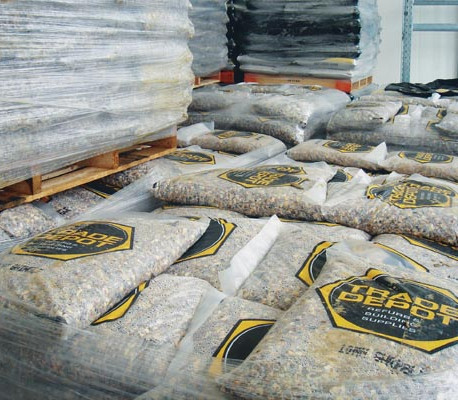
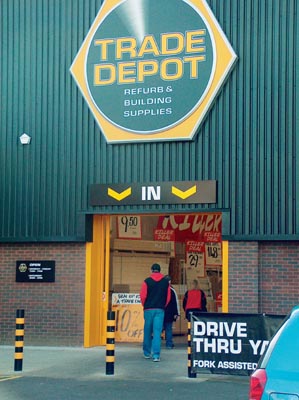
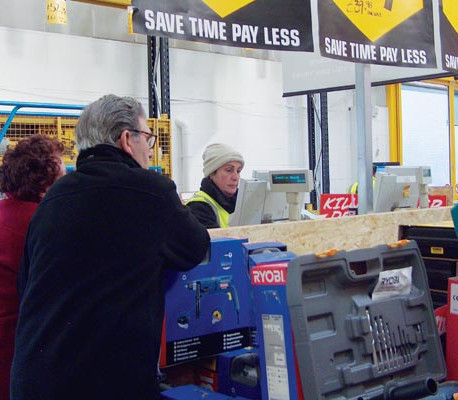

 Menü
Menü




